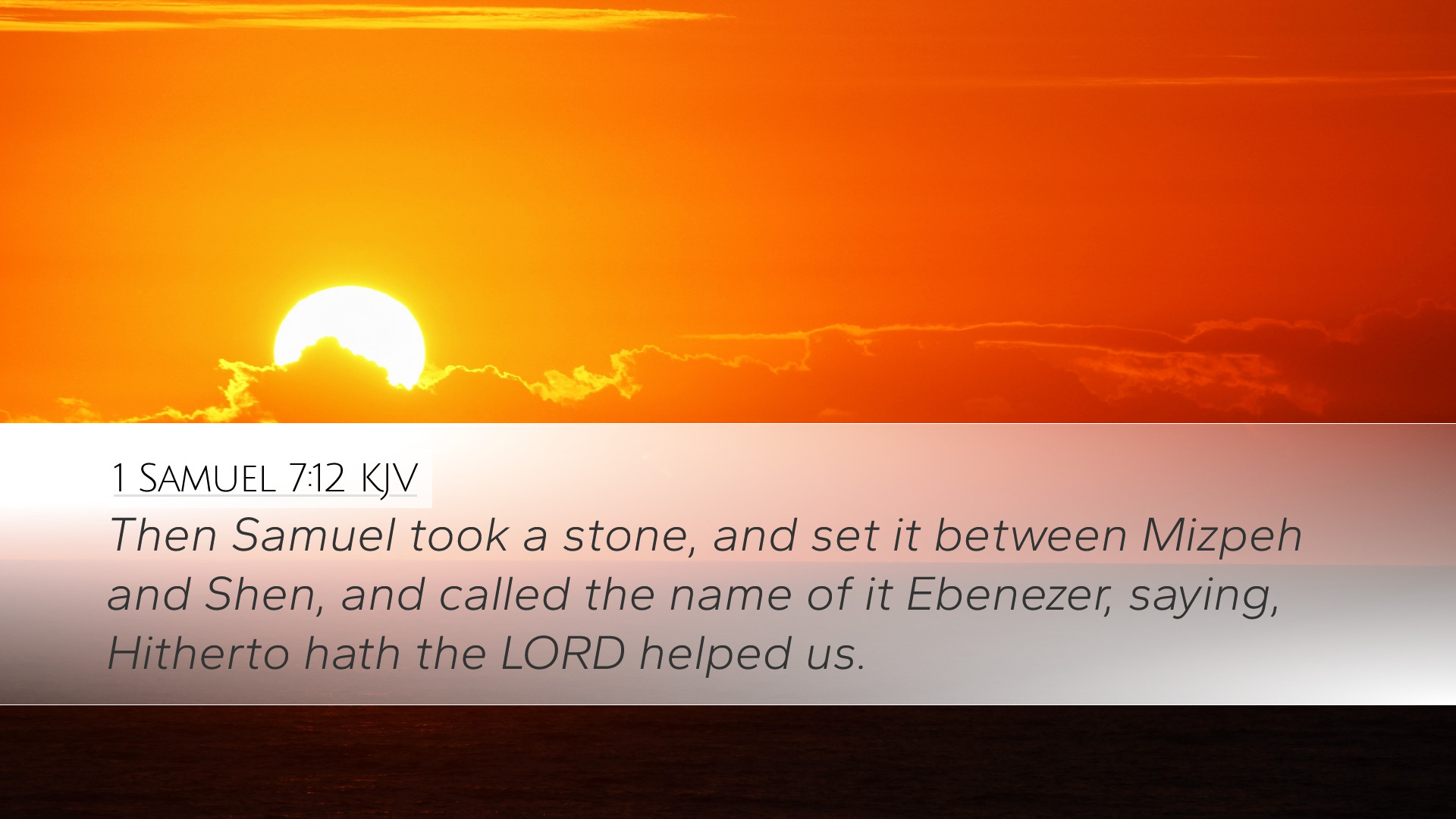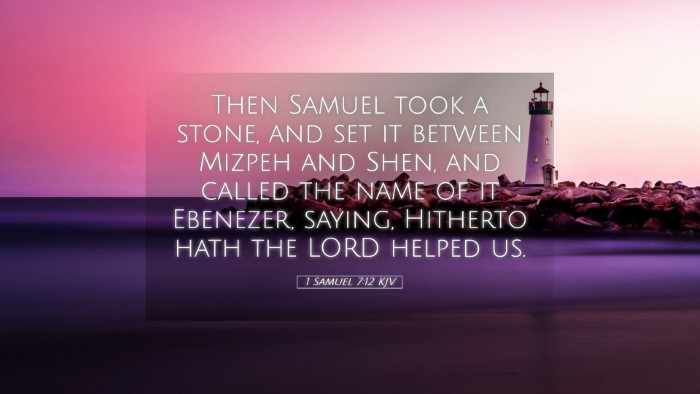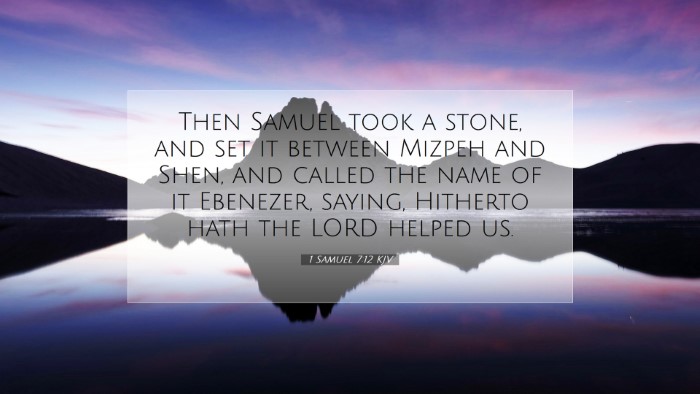Commentary on 1 Samuel 7:12
Verse: "Then Samuel took a stone and set it up between Mizpah and Shen, and named it Ebenezer, saying, 'Thus far the LORD has helped us.'" (1 Samuel 7:12, ESV)
Introduction
This significant verse marks a pivotal moment in Israel's history, capturing both the spiritual and historical context of God’s deliverance. The term “Ebenezer” translates to "stone of help," symbolizing a reminder of God’s faithfulness and assistance. The narrative surrounding this moment is steeped in themes of repentance, divine intervention, and communal recognition of God’s grace.
Contextual Background
The period leading up to this verse is characterized by the Israelites returning to God after a time of spiritual decline and oppression under the Philistines. Samuel, acting as the prophet and judge, leads the people in a national renewal, which is essential for understanding the significance of the stone that he erects.
The Significance of the Stone
- Symbolism of Remembrance: The act of setting up a stone serves as a physical monument indicating a specific moment of divine intervention. According to Matthew Henry, such markers were common in scripture to remind future generations of God's provision and aid.
- Recognition of Divine Help: Samuel's declaration, "Thus far the LORD has helped us," is pivotal. As Adam Clarke points out, this acknowledges not only the past assistance the Israelites received but also establishes a precedent for future trust in God’s unfailing help.
- Community Involvement: The memorial stone serves a collective function. Albert Barnes posits that this act of communal remembrance reinforces the unity of the Israelites and their shared experiences of God’s faithfulness.
Theological Implications
This verse highlights several theological themes critical for pastors and theologians:
- God’s Faithfulness: The phrase "Thus far" reflects an acknowledgment of God's continuous aid throughout trials. It prompts believers to reflect on their own experiences of divine assistance, encouraging a culture of gratitude and remembrance.
- The Role of Leadership: Samuel’s leadership illustrates the responsibility of spiritual leaders in guiding their communities back to God. His actions serve as a model for contemporary pastors, emphasizing the importance of directing congregations towards communal worship and acknowledgment of God’s works.
- Escalation to Worship: The setting of this stone occurs after a significant victory over the Philistines. The remembrance signifies a call to worship and celebration of God’s deliverance. This illustrates the nature of praise in response to divine intervention, which is a theme seen throughout scripture.
Application for Today
For modern believers, the message of 1 Samuel 7:12 urges active remembrance of God's past provisions as foundational in building faith for future challenges. Here are some contemporary applications:
- Creating Personal “Ebenezers”: Individuals are encouraged to establish personal markers of God’s faithfulness in their lives, whether through journals, physical tokens, or gathered community testimonials.
- Encouraging Collective Remembrance: Churches can practice corporate remembrance through testimonies, celebrations, and remembrance services that reflect on God’s goodness.
- Fostering Trust in God’s Future Help: By reflecting on past victories, congregants can build confidence in facing life's trials, drawing strength from the assurance of God’s unchanging nature.
Conclusion
1 Samuel 7:12 is not merely a historical anchor but a theological gem that calls believers to remember, rejoice, and declare the goodness of God. The insights drawn from this verse serve to inspire contemporary faith and communal worship, reminding the faithful that just as God has helped in the past, He will continue to be present in the challenges that lie ahead.


